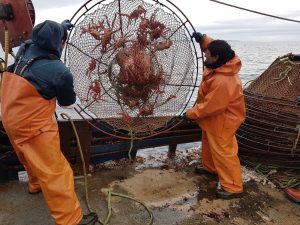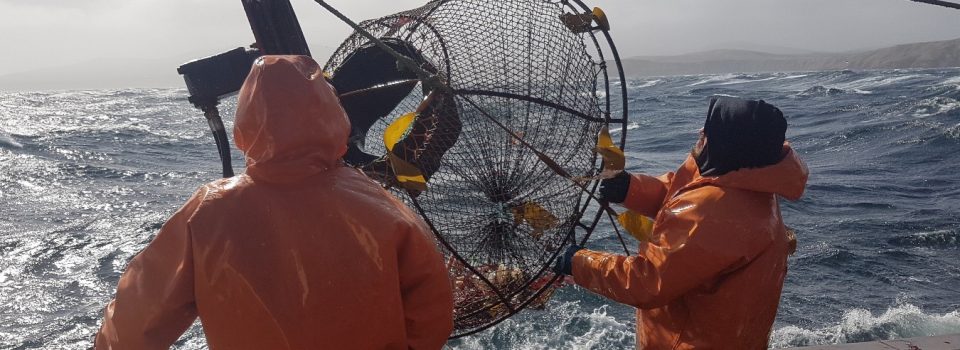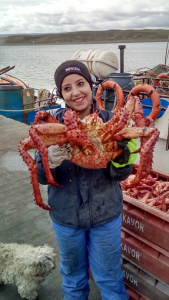IFOP’s research focuses on ecosystemic exploitation of spider crab in Magallanes.
May 25th, 2020During 2019 first semester , Wildlife Conservation Society Chile (WCS) and Fisheries Development Institute (IFOP), signed a Collaboration Agreement with the aim of carrying out joint actions in the field of Research and innovation for artisanal fishing development in Magallanes region.
Both institutions collaborative work has its first results. With The Walton Family Foundation (WFF)support , they will carry out a research “Assessment of fishing gear and proposal for improvement for ecosystemic spider crab (Lithodes santolla) exploitation in Magallanes Region”.
IFOP researcher Erik Daza Valdebenito research’s head explained “Crab fishery (Lithodes santolla) has been carried out since 1928 in Magallanes and Chilean Antarctic region. Currently artisanal fishing fleet operates from Castillo channel in the north to Wollaston islands in the south, traveling more than 10,000 km2 of coastline in the fjord and canal system during fishing season that runs from July 1rst to November 30th each year. New markets openings and rising sales prices in recent years, in addition to interesting economic remuneration offered by this fishery, has constantly generated expansionary pressures from industrial and artisanal sectors, which have been expressed in an increase in fishing effort and in installed capacity in the region, it is estimated that more than 6,000 people would work directly and indirectly in the production chain.

This fishery management requires incorporating measures that consider ecosystemic approach application mentioned in Fisheries and Aquaculture General Law . In this context, the study will allow a pilot experience development to incorporate alternative escape trap mechanisms . The objective is to facilitate male specimens release under legal minimum catch size (12 cm long cephalothorax) and species that are part of the accompanying fauna associated with fishery. On the other hand, we will carry out field tests with artisanal fishermen, to evaluate the interaction of fishing gear used with large marine cetaceans. The final objective is to recommend mitigation measures to the Management Committee, the Sectoral Authority and to provide updated scientific information on the requirements for the export of this resource to the North American market. The study will be carried out during the year 2020, the final results will be delivered during the second half of 2021, considering the region health evolution .

